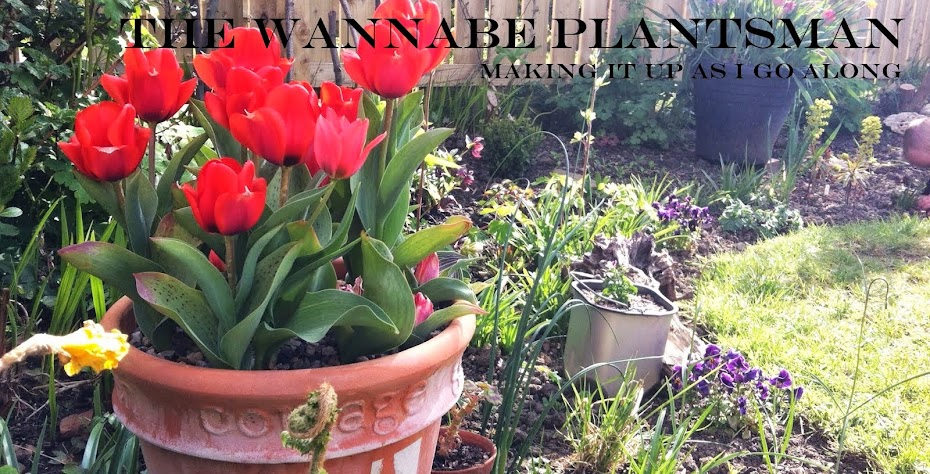Peat free gardening is not a new topic of discussion. It is something that gardeners have been made aware of for several decades now. Some choose to ignore it, possibly pleading ignorance, others will give it their best efforts, and then at the other end of the scale are those who approach the subject with an almost maniacal zeal.
Whilst I applaud the standards of the latter group I'm afraid I probably fall into the middle one. I buy peat free compost, but this is something I have only recently started to make an effort with. I don't however have the time or the money to start demanding that all plants I buy be grown in a completely peat free environment. As far as I'm aware, my local nurseries and garden centres don't do this (I assume it would be advertised as a selling point if they did) and I do feel that supporting those local businesses is important. One of the main issues I've run into when starting to look at peat-free gardening is that a lot of the available compost is total crap. There seems to be a wide range of woody rubbish that's riddled with lumps of plastic, and in one case pieces of glass. Not pleasing. Many gardeners are unlikely to be totally converted until the alternatives are as good as their peat based counterparts. I have started making my own compost, but as I've been on with this gardening lark for less than a year I don't have any ready for use yet.
I'm not going to start getting into the details of the environmental impact of peat extraction. This has already been done in a number of places, and in a far more informed and eloquent fashion than I could muster here. For those at are interested in this background reading, take a look here for some information. Many other pages can be found with a well wielded Google search.
As my gardening knowledge expands, so too does my wish to make use of certain materials and techniques. For example, I've been reading about the importance of using a soil based compost mixture when potting up plants that are likely to live in a container for a while in order to provide them with as much in the way of long term nutrition as possible. The vast majority of the John Innes type soil based composts contain peat, and the alternatives are pretty pricey, so I'd like to know how I go about creating my own.
Enter at this point a timely encounter with a request broadcast via Twitter from Emma for people to listen to and review her new audiobook, The Peat-Free Diet. Obviously I leapt at the opportunity and have listened to it through a couple of times whilst sitting through my thoroughly tedious daily commute to the great temple of Mammon. For those who prefer their books in the more traditional written format, it was originally published as a series of blog posts that can be found at the above link.
Emma starts at the very beginning of the growing process, looking at the process of seed germination and giving the fullest scientific explanation of what happens and what the seedling requirements are that I have read to date. She covers the different peat-free mediums that can be used for getting plants going and explains the best ways to prepare these mediums to give your seedlings the best start. Following this she talks about seedling development and potential problems that could be encountered, mainly in the way of diseases.
From what I've been able to gather, one of the main problems/quirks of using peat free compost is that you need to alter your watering habits. There are a couple of chapters that touch on this and offer some very useful suggestions and solutions. Further chapters touch on subjects like container drainage, soil structure and improvement, and creating your own compost.
All told, this was a very useful collection of information. It answered a lot of my questions on making my gardening as peat free as possible. My big question - the above mentioned potting compost mixture - was covered nicely and I shall be putting this into practice ASAP.
This book did strike me as being a collection of very in-depth gardening and propagation knowledge, with an emphasis on being peat-free, rather than a book about peat free gardening. My level of gardening knowledge doesn't have the depth to allow me to offer suggestions on how this impression could be addressed, but it is probably due to the level of background information that is required to explain the correct application of the peat-free alternatives. This audiobook is definitely worth a listen and I would recommend it to anyone who is interested in changing their gardening practices for the better.
For more information you can visit Emma's website or follow @emmathegardener on Twitter.


No comments:
Post a Comment
Speak to me! Please be kind, I'm such a delicate soul...